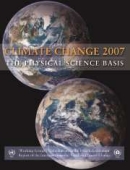
In the current open journalistic season on IPCC sniping the NZ Herald has joined in with an editorial taking up new accusations made by the UK’s Sunday Telegraph and Sunday Times.
The editorial begins with the Himalayan glacier error, which the IPCC itself has accepted and expressed regret for. But the Herald has the scent of blood and moves on to take up the claims of the UK newspapers with uncritical enthusiasm.
“If the Himalayan debacle was bad enough, the panel references to disappearing ice in the Andes, the European Alps and Africa are even more embarrassing.
They turn out to have been based on a student dissertation and an article in a climbing magazine.”
This absurd accusation probably originates with a Sunday Telegraph article, though it is not cited. Let’s look at what is involved. In chapter 1 of Working Group II’s report there is a section on observed changes in the cryosphere. In the course of the section a short table (page 86) of selected observed effects is provided. Included among them is the loss of ice climbs in the Andes, the Alps and Africa. It is in relation to this minor observation that the student dissertation and climbing magazine article are cited by the IPCC. But somehow the Herald manages to imply that the IPPCC references to disappearing ice are based on these two sources.
The reality is that the Working Group I report in chapter 4 (pages 356-360) deals with observed changes glaciers in a section densely packed with scientific information, whereas the Working Group II report in which this report is found describes the observed effects on the environment and on human activities due to these recent cryospheric changes. And the loss of ice climbs is a tiny part of those effects.
But, says the Herald, the articles fall some way short of scientific evidence. Admittedly they are anecdotal, but I imagine the IPCC authors regarded that as not unreasonable in a matter more likely to be noticed by climbers than researched in scientific papers. The author of one of the articles commented: “I am surprised that they have cited an article from a climbing magazine, but there is no reason why anecdotal evidence from climbers should be disregarded as they are spending a great deal of time in places that other people rarely go and so notice the changes.” Worth noting too that the magazine article was written by Mark Bowen, a keen climber and author of Thin Ice, the excellent story of Lonnie Thompson’s efforts to drill cores in high altitude tropical glaciers. Bowen went with Thompson on a number of expeditions, so knows his stuff. IPCC authors are not, as is commonly thought, entirely restricted to peer-reviewed literature. Their instructions include the following:
“The authors will work on the basis of peer reviewed and internationally available literature, including manuscripts that can be made available for IPCC review and selected non-peer reviewed literature. Source, quality and validity of non-peer reviewed literature, such as private sector information need to be critically assessed by the authors and copies will have to be made available to reviewers who request them. Disparate views for which there is significant scientific or technical support should be clearly identified in IPCC reports, together with relevant arguments. Expert meetings and workshops may be used to support the preparation of a report.”
Maybe their judgement can be faulted in this particular case. Not by me, I hasten to say. But it is hardly a matter of any great substance. Indeed it is tiny. The Herald editorial grossly exaggerates its significance.
And there is more, says the Herald. There has been a critical examination of the IPCC’s ”attempts to link natural disasters to global warming”. The Herald doesn’t mention that this ”critical examination” was conducted by the UK Sunday Times.
“ [The IPCC’s] claim in 2007 that the world had ‘suffered rapidly rising costs due to extreme weather-related events since the 1970s’ turns out to have been based on a paper that had not been peer-reviewed or published at that time.”
The words in quotes look as if they are from the IPCC report. They’re not. They’re from the Sunday Times article. The IPCC report is restrained and cautious. The Sunday Times article is sloppy and wildly inaccurate. You can read what I wrote about it on Hot Topic here. I won’t repeat myself. I described it as simply untrue. But it has evidently entered the journalistic canon.
I guess we should be relieved that the Herald shows no inclination to join the denialist community as a result of its uncritical acceptance of the Sunday Telegraph and Sunday Times articles, but it should think again about the strictures which it was lavish with. The IPCC reports are massive in size and massive in value. It may be asking a bit much that editorial writers should spend time acquainting themselves with them, but if they are not going to do that they should at least treat with great caution the ”revelations” of its failures in scientific rigour. There will no doubt be more of those, since I suspect the denialist community is going through the IPCC references with a fine comb. If they prove correct the IPCC will again acknowledge error and express regret, as it did over the Himalayan glaciers. But the Herald should make sure it is dealing with matters of reasonable substance before it rushes to judgement.
